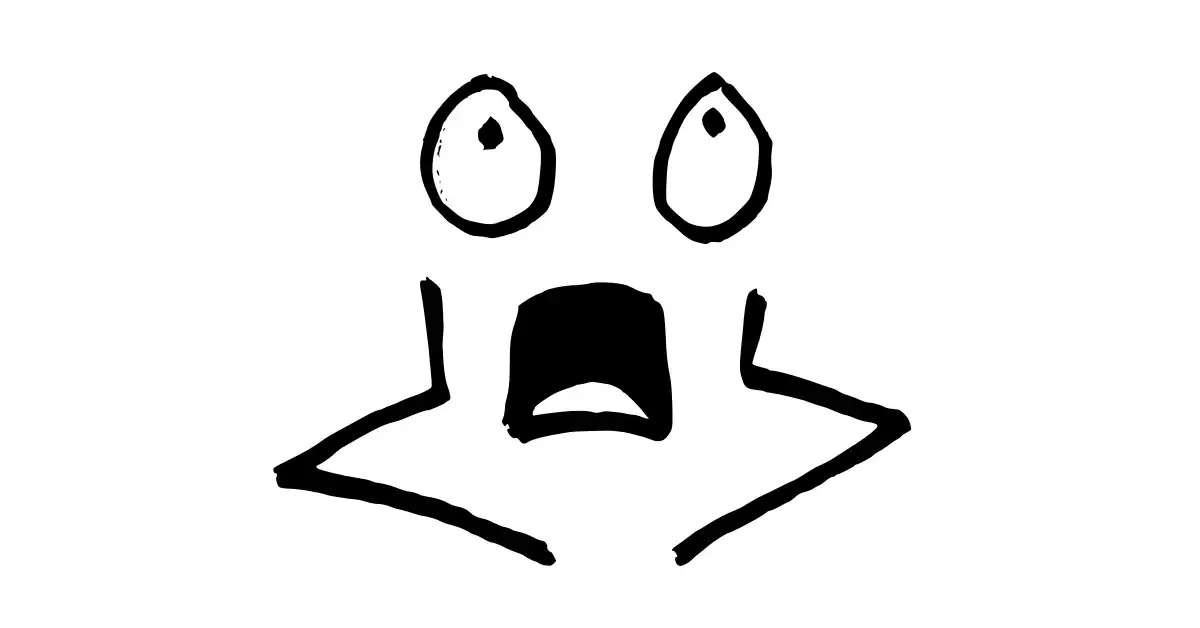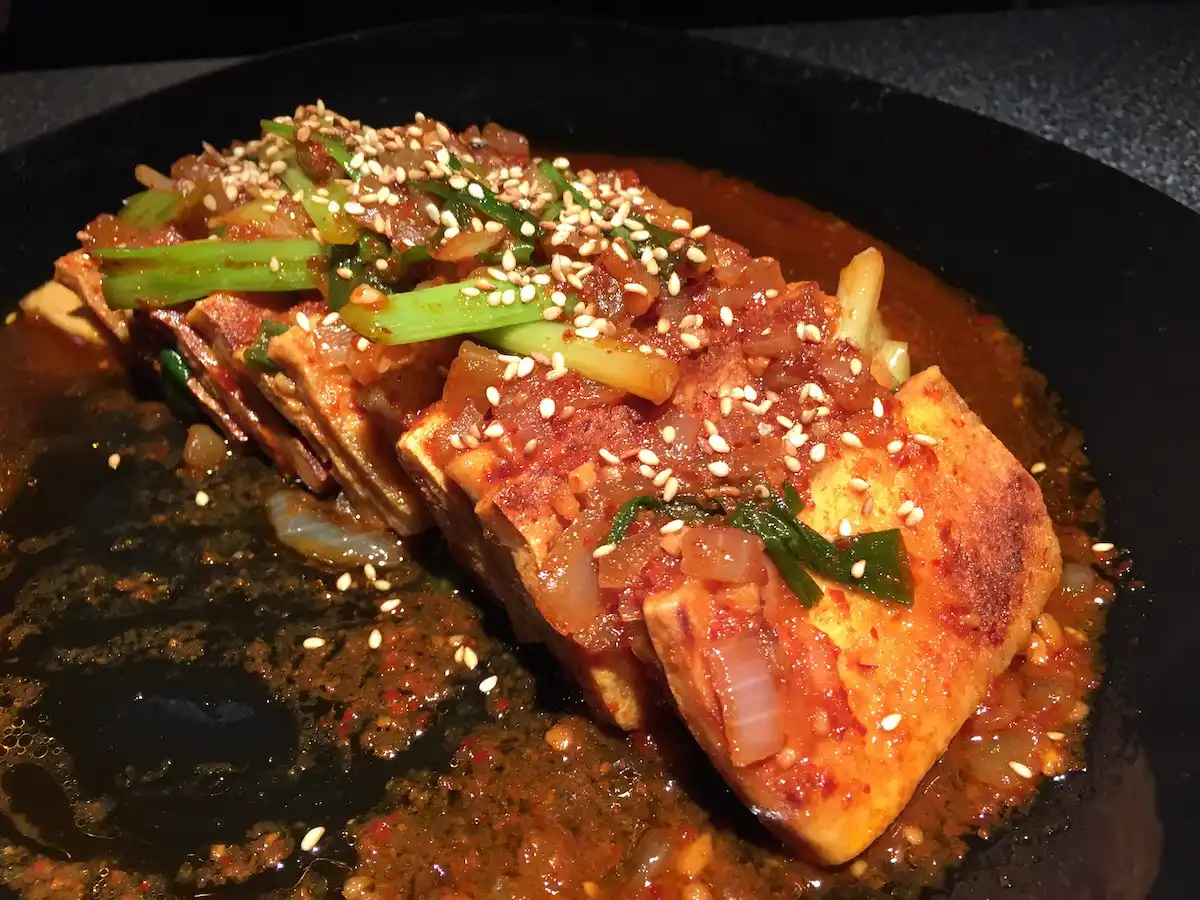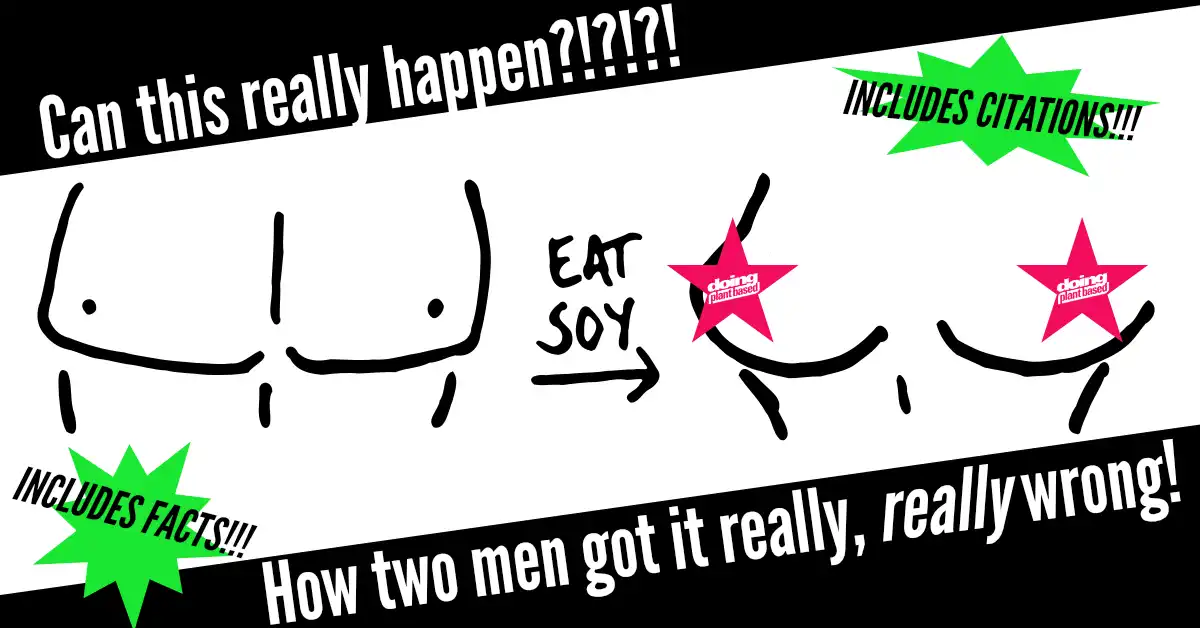When you’re a stick man at a Gold’s Gym back in the day, and a big, muscle-y bodybuilder is warning you about soy, in a tone of voice like the lights are off and they’re holding a flashlight under their face, you steer clear of the stuff.
They explained that it’s full of estrogen, and it’s bad for men, especially stick men to go around eating the female sex hormone, because they know someone who got their steroid stack/cycle diet completely wrong, which naturally included a little bit of soy, and ended up growing boobs, like Robert Paulson from Fight Club.
That was twenty years ago. More recently, I realized if I’m going to do this plant-based thing properly I should probably revisit some of the foods I had previously been avoiding for one reason or another. I am not a picky eater, so the list is short:
• carrots (icky)
• soy (the boobies thing)
Carrots were pretty easy to tackle; I buy a little bag of matchstick carrots every week and throw handfuls into my salads and cooking. They’ll never be my favourite, but now I have another tool in the box. Moving on.
My aversion to soy was fear-based, so I figured information would help me out here, so I bought some books and started reading. Most arrived at the same conclusion, but here’s my favourite summary:
Some of this misinformation about soy resulted from studies of two men who regularly consumed 14 to 20 servings of soy daily (one derived almost all of his calories from soy) and subsequently developed health problems, such as enlarged breast tissue and loss of libido.
Becoming Vegan
by Brenda Davis RD & Vesanto Melina MS, RD
WTF!?
The bodybuilders were right?!
The bodybuilders were right.
The citations Mss. Davis & Melina provide elaborate a little further on what these men were up to:
Citation #1: The Unusual Case of Gynecomastia & Soy
A 60-year old man was referred to the endocrinology clinic for evaluation of bilateral gynecomastia of 6 months' duration. He reported erectile dysfunction and decreased libido.
Bilateral Gynecomastia is how professionals describe boobies enlargement of breast tissues in males, on both sides of the body, commonly caused by estrogen levels that are too high.
. . . he reported no changes in testicular size, no history of testicular trauma, no sexually transmitted diseases, no headaches, no visual changes, and no change in muscular mass or strength. Initial laboratory assessment showed estrone and estradiol concentrations to be 4-fold increased above the upper limit of the reference range. Subsequent findings from testicular ultrasonography; computed tomography of the chest, abdomen, and pelvis; and positron emission tomography were normal.
Emphasis mine; estrone and estradiol are female sex hormones.
Because of the normal findings from the imaging evaluation, the patient was interviewed again, and he described a daily intake of 3 quarts of soy milk.
I don't know what this gentleman was thinking; maybe he enjoyed the taste or maybe it was health or fitness related. It’s easy to imagine an enthusiastic GOMAD-er wanting to try out the plant-based thing in the easiest way possible (i.e. the most correct way), maybe reading a protein scorecard, then slamming the book shut and running to the grocery store.
bovine milk | 1 |
casein | 1 |
eggs | 1 |
soy protein | 1 |
silkworm pupae | 1 |
whey | 1 |
mycoprotein | 0.996 |
potato | 0.99 |
chicken | 0.95 |
beef | .092 |
bovine milk | 1 |
casein | 1 |
eggs | 1 |
soy protein | 1 |
silkworm pupae | 1 |
whey | 1 |
mycoprotein | 0.996 |
potato | 0.99 |
chicken | 0.95 |
beef | 0.92 |
Anyways, this story has a happy ending:
After he discontinued drinking soy milk, his breast tenderness resolved and his estradiol concentration slowly returned to normal.
Let’s take a look at the next citation:
Citation #2: The Case Indicating Soy's Relation To Hypogonadism & Erectile Dysfunction
We present the case of a 19-y-old type 1 diabetic but otherwise healthy man with sudden onset of loss of libido and erectile dysfunction after the ingestion of large quantities of soy-based products in a vegan-style diet.
This gentleman did not start to grow boobs, but he's the one who somehow ate "almost all" of his calories from soy products; the full (paywalled) article explains he was previously on a 2000-kcal American Diabetes Association diet, before switching to, well... the authors can explain:
The diet consisted of soy milk, soy cookies (soy crisps), tofu, soysauce, soy nuts, and soybeans (edamame).

A literature review recently published included nine studies with 252 subjects [citation]. The highest exposure level in any of these subjects was 139 mg/d, whereas our patient consumed soy products that equalled 360 mg of isoflavones per day.
Another book on my shelf provides a little perspective on isoflavone content:
The Swiss Federal Health Service equated 100 milligrams of isoflavones (phytoestrogens) to a single birth control pill in terms of estrogenic impact.
The 4-Hour Body
by Timothy Ferriss
Back to the study of the 19-year old, the abstract explains how the story ends:
. . . full sexual function was regained 1 y after cessation of the vegan diet.
Now What?
I gotta be honest here; I really dislike soy milk, and cookies and nuts made of soy sound more like cheap dog treats than human food; I’m never going to eat these sorts of things.
I do however eat veggie dogs, I cook with tamari and want to eat a little bit of tofu on occasion — basically what I’d describe as a sensible amount.
That's probably OK, right?
These two situations shouldn't be construed to show moderate intakes of soy food are unsuitable for men and for other family members. It's been well established that two or three servings of soy foods daily is an appropriate, healthful intake. However, soy shouldn't crowd out other health-supportive plant foods.
Becoming Vegan
by Brenda Davis RD & Vesanto Melina MS, RD
The authors support the above assertion with a few citations:
. . . other than allergic reactions, there is almost no credible evidence to suggest traditional soyfoods exert clinically relevant adverse effects in healthy individuals when consumed in amounts consistent with Asian intake.
Conclusion(s): The intervention data indicate that isoflavones do not exert feminizing effects on men at intake levels equal to and even considerably higher than are typical for Asian males.
Conclusion(s): The results of this meta-analysis suggest that neither soy foods nor isoflavone supplements alter measures of bioavailable T concentrations in men.
That settles it, right... ?
… Right?
Not so fast; while the books about plant-based diets on my shelf present the sum of the facts here in similar fashion, the omnivores provide a different take:
Based on all of the literature I've reviewed, the phytoestrogens in soy are dangerous for adults and, to a greater extent, children, even when used in moderation.
The 4-Hour Body
by Timothy Ferriss
SHOTS FIRED.
But what does Tim Ferriss know?!
Well… his books might seem a little crazy at first, but Mr. Ferriss does good research, consults and works with some of the best experts in the world, and then takes the time to hand hold me
the layman through whatever he’s talking about, finally providing coherent step-by-step instructions on how we might apply the information to our situation.
Mr. Ferriss doesn’t share with us all of the literature he’s reviewed regarding soy, but he eventually continues the thought from above, concluding with the following:
Dr. Richard Sharpe, director of the Medical Research Centre for Reproductive Biology in Edinburgh, Scotland, echoes my conclusion about soy:
"I've seen numerous studies showing what soy does to female animals. Until I have reassurance that it doesn't have this effect on humans, I will not give soy to my children."
The 4-Hour Body
by Timothy Ferriss
So while these two gentleman are avoiding soy as I once did, Mr. Ferriss’ goes on in the 4-Hour Body to present a couple of interesting case studies, one featuring ultra-marathoner [GOAT] Scott Jurek and another featuring prolific nutrition writer & coach Dr. John Berardi, both of who shared their shopping lists and diets during (very successful) experiments with plant based.
Both included what sounds like a sensible amount of soy in their diets; Mr. Jurek’s shopping list included soy protein powder, tempeh, shoyu and miso, while Dr. Berardi ate 2 cups of unsweetened soy milk daily, for 30 days.
No bilateral gynecomastia reported.
And now… well, I guess we’re back where we started:
Yes, soy can cause men to grow boobies, but not only that, it can totally ruin a guy’s sex drive and make it so we can’t get it up.
But then we’d be in an “unusual” situation, and might have had to consume “almost all” of our calories as soy products, and I dunno about you, but I’m not gonna go and do that.
...
I gotta be honest here; after reading a little about soy I’m not really worried at all anymore [YMMV], and to prove it to myself I made [this braised tofu recipe] from Maangchi's website.

Delicious!
Or... at least I thought so. It turns out the wife really hates the texture of tofu.
So... that's probably it for me and tofu, then.
Up next: Tempeh
Do you eat soy? In what form? Favourite recipes?
Let me know. Leave a comment below.

